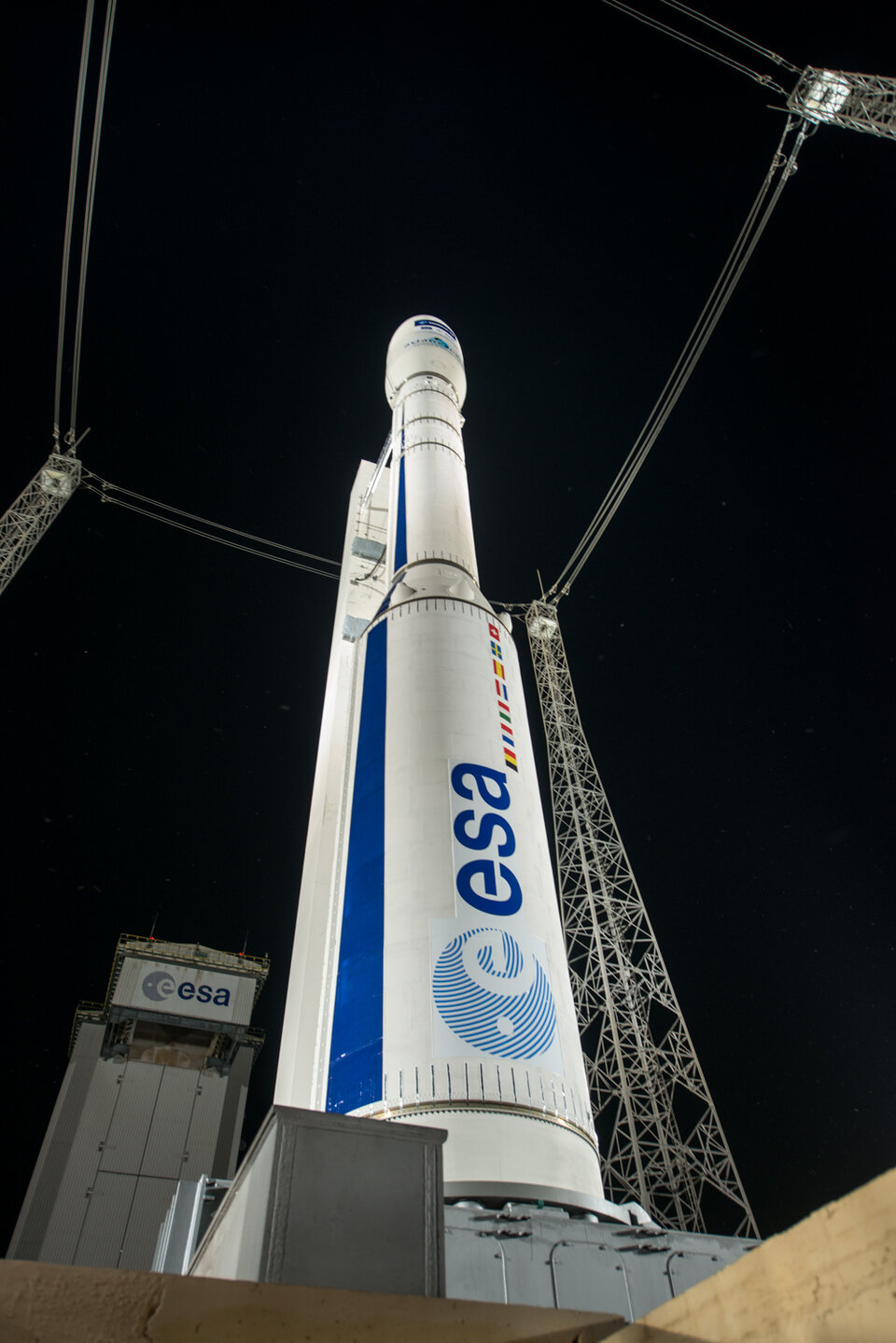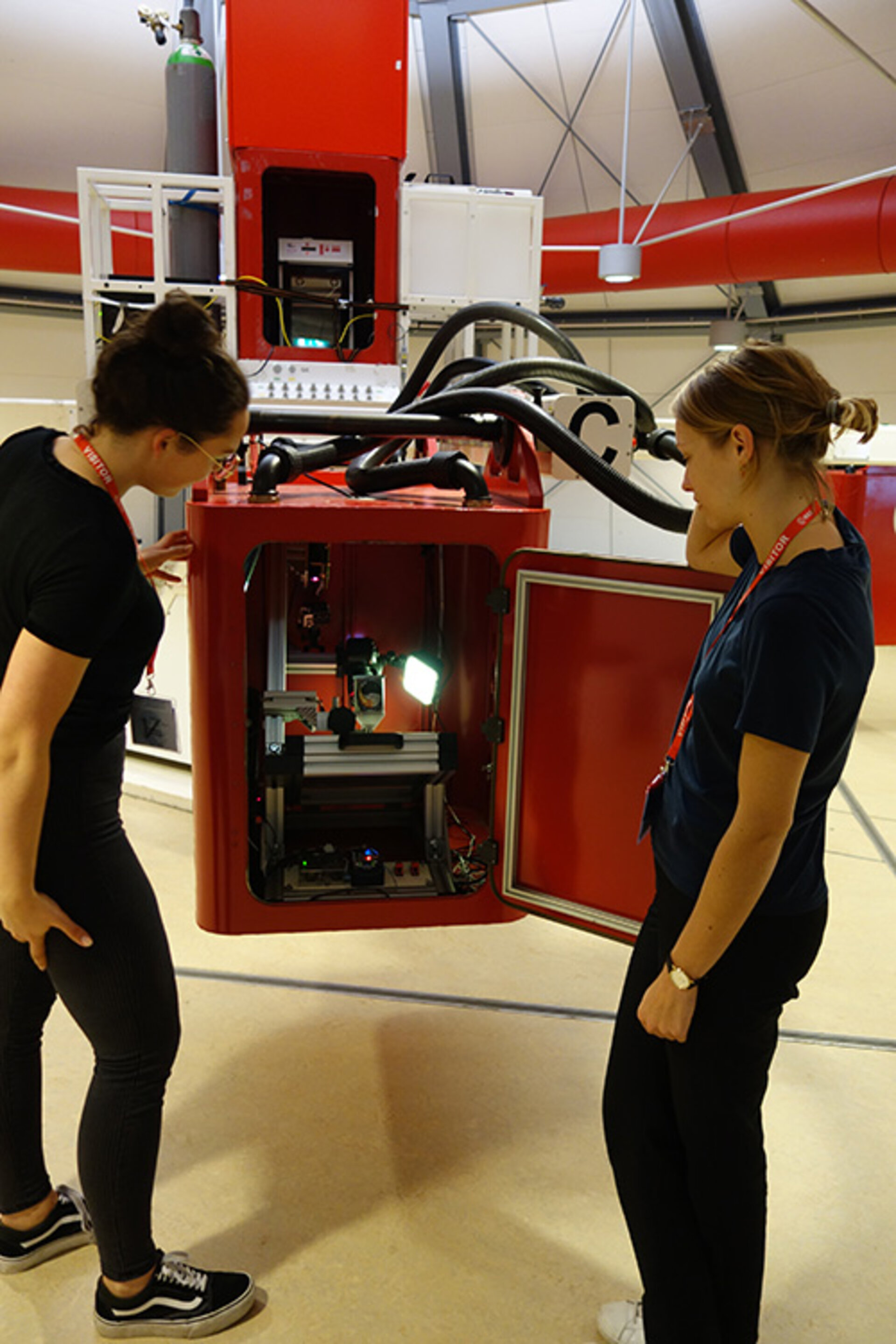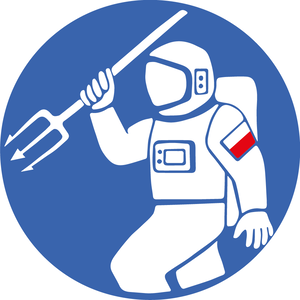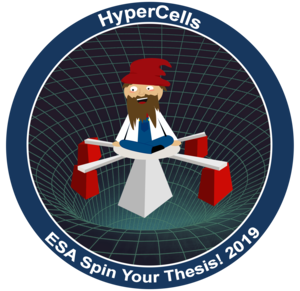Two teams selected for the Spin Your Thesis! 2019 programme
ESA Academy is pleased to announce that two teams, team GDArms from the Gdánsk University of Technology and team HyperCells from the Wrocław Medical University and Wrocław University of Science and Technology, have been selected to develop and perform their experiment in hypergravity conditions for the Spin Your Thesis! 2019 programme.
The Long Diameter Centrifuge (LDC) provides a hypergravity environment for cells, plants as well as physical science and technology. It can host experiments in six gondolas, with a maximum payload of 80 kg. Through rotation, centripetal forces create a hypergravity field inside the gondolas which can last from one minute up to six months without stopping. The two teams will have a 2.5 day time slot available each to perform their experiments.

Composed of four Polish students, team GDArms hopes to create a realistic rocket environment within the LDC that allows for testing of payloads and vehicle subsystems prior to rocket launches. This could additionally enable the investigation of system failures during launches. As such, they will place a custom designed shaker table, with a small thermal vacuum chamber, and a dummy Cubesat with sensors inside the LDC. Both the centrifuge and their shaker should be activated while thermal flux and air pressure temporal profiles will be recreated through a resistive heater and vacuum pump. The team will aim to measure vibrations, temperatures, pressure and accelerations in a 5g environment, similar to the gravity levels reached during Soyuz, Ariane 5/6 and Vega rocket launches.

Team HyperCells, with four students from Poland as well, aims to achieve a deeper understanding concerning Multidrug Resistance (MDR) that occurs in some cancer types, leading to treatment failure. Specifically, the team hopes to reveal how various hyper gravitational stress levels affect cell pathways in MDR and whether it would lead to higher sensitivity of cancer cells to chemotherapy. Cells will be exposed to four different hypergravity levels (5g, 10g, 15g and 20g) and various control conditions in the presence or absence of cytostatic drugs.
During the development of their experiments, both teams will be supported by ESA and hypergravity experts. A member of the European Low Gravity Research Association (ELGRA) will also be at hand to provide advice and expertise in gravity-related research. This opportunity complements other gravity research opportunities offered by ESA Education Office, such as 'Fly Your Thesis!’, ‘Drop Your Thesis!' and the new ‘Spin Your Thesis! Human Edition’ and ‘Orbit Your Thesis!’ programmes. For further information on these programmes, please refer to the ESA Education website.






